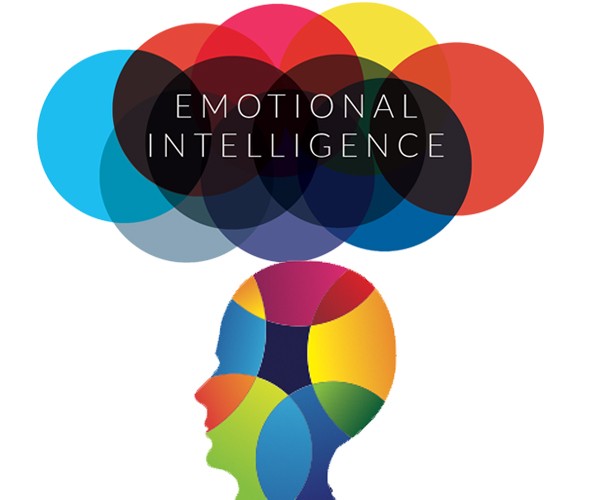In today’s fast-paced and competitive business environment, it is not enough to only possess technical skills. Employers are now placing a premium on the character and mental fortitude of their own and also potential staff. This is where Emotional Intelligence comes into play.
It is becoming increasingly evident that employees with higher emotional intelligence are more successful in the workplace. This is why many organizations are now investing in emotional intelligence training for their employees. In this article, we’ll explore the concept of emotional intelligence and the benefits accrued from its training in the workplace.
Contents
Understanding Emotional Intelligence
Emotional Intelligence refers to the ability to recognize, understand, and manage our own emotions, as well as the emotions of others. Individuals possessing this ability are usually seen as a personality, culture and organization fit. Hence the reason emotionally intelligent individuals are preferred over the more technically astute ones.
Emotional intelligence is a multi-faceted concept that includes several different skills. These skills include self-awareness, self-regulation, motivation, empathy, and social skills.
Self-awareness involves recognizing and understanding one’s own emotions, while self-regulation involves managing these emotions effectively.
Motivation on the other hand involves the ability to use emotions to drive positive action.
Meanwhile, Empathy involves understanding the emotions and perspectives of others, while social skills involve effectively managing relationships with others.
Benefits of Emotional Intelligence Training
1. Improved Communication
Effective communication is the cornerstone of any successful workplace. Emotional intelligence training can help employees develop the skills needed to communicate clearly and effectively. By learning how to be mindful of their own emotions and the emotions of others, employees can adjust their communication style to better suit the situation.
This can lead to better collaboration, fewer misunderstandings, and improved relationships between coworkers.
2. Enhanced Conflict Resolution in the Workplace
Conflict is an inevitable part of any workplace. However, employees with higher emotional intelligence are better equipped to manage conflicts effectively. Through training, employees can learn to manage their emotions during a conflict and approach the situation with a level head.
They can also learn to empathize with the other person’s point of view, which can lead to more constructive conversations and a faster resolution to the conflict.
3. Improved Teamwork
Teamwork is essential to the success of any business. Emotional intelligence training can help employees develop a greater sense of empathy towards their coworkers. When employees understand each other’s emotions and perspectives, they are better able to work together towards a common goal. This can lead to greater productivity and a more positive work environment.
4. Increased Leadership Abilities
Leadership is not just about technical skills; it’s also about managing situations devoid of emotional extremes. Training can help employees become effective leaders by ingraining in them the skills to manage emotions. They can thus become more self-aware and make better decisions. They can also learn how to motivate and inspire their team members, which can lead to even greater successes for the organization.
5. Improved Customer Service
Employees who handle customers have to deal with a myriad of complaints, hurtful words and insults. Its therefore imperative that staff within those roles are emotionally intelligent. By learning how to identify and understand a customer’s emotions, employees can provide a more personalized and empathetic service. This can lead to greater customer satisfaction and loyalty, which is essential to the success of any business.
Developing Emotional Intelligence in the Workplace
While some people may be naturally more emotionally intelligent than others, emotional intelligence can be developed and improved with Learning and Development. Training on emotional intelligence is an obvious first step in developing an emotionally intelligent staff workforce. Training helps staff become self aware of their deficiencies as far as emotional intelligence is concerned. They would therefore respond without inherent biases in situations of stress.
Team leaders can also encourage self-awareness amongst their team members to make them more emotionally intelligent. Practicing self-awareness involves taking time to reflect on one’s own emotions, thoughts, and behaviors.
This can involve journaling, meditation, or simply taking a few moments each day to check in with oneself. Learning to manage emotions effectively involves developing strategies for coping with stress and difficult situations. This might include deep breathing, taking a break, or seeking support from others.
Seeking feedback from others is an important part of developing emotional intelligence. It can be helpful to ask trusted colleagues for honest feedback on how one comes across in social situations. Feedback helps with corrective adjustments of insensitive actions we may project to others.
Practicing empathy and active listening involves taking the time to understand and appreciate the emotions and perspectives of others. This can be done through active listening, asking questions, and making an effort to understand others’ points of view.
Finally, developing strong social skills in the workplace would go a long way of helping you be mindful of yourself and others. It involves building strong relationships with others, communicating effectively, and managing conflicts. This might involve practicing assertiveness, developing negotiation skills, or seeking out opportunities to collaborate with others.
Conclusion
In conclusion, emotional intelligence training can have a significant impact on the success of a business. It can lead to improved communication, enhanced conflict resolution, better teamwork, increased leadership abilities, and improved customer service. It’s therefore imperative that organizations invest in emotional intelligence training for their employees.
Don’t know where to start on emotional intelligence? Indepth Research Institute (IRES) provides emotional intelligence training to help you and your organization be the best version of yourselves!
Register now and be the leader you’re meant to be!
We have a firm belief that every organization has a unique purpose only they can fulfil in this world. We work with you in organizing your resources to exploit opportunities so that you can fulfil your purpose and realize full potential. We build the capacity of people, processes and systems for organizational success and growth as well as nurturing a thriving ecosystem.
Ready to enhance your skills and boost your career? Explore our corporate training programs now and start your journey to success.









Comment here